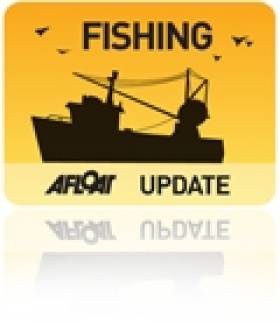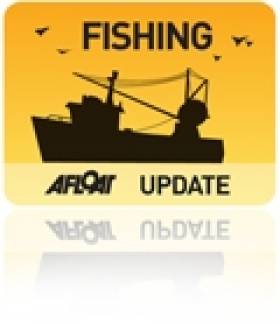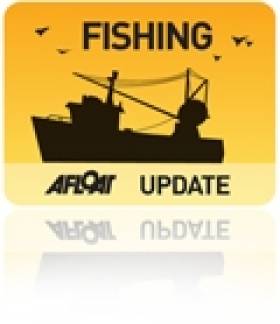Displaying items by tag: Hugh FearnleyWhittingstall
#CFP - 'Fight Fight' campaigner Hugh Fearnley-Whittingstall writes on the Guardian's Comment Is Free blog that this week's upcoming discussions among the EU's fisheries ministers is a "once-in-a-decade opportunity" to end the practice of fish discards.
The TV chef, who has long campaigned against the practice of discarding fish in Europe's seas under the quota system implemented by the Common Fisheries Policy (CFP), hopes that this week's discussions among EU ministers over the final text to submit to the European Parliament includes "a proper discard ban - one that will finally eliminate the disgraceful waste of fish that occurs under the current system".
Though all parties involved have agreed in principle to ban discards, Fearnley-Whittingstall believes "we're in the endgame: a tussle between the parliament and the ministers over the final shape of the new CFP" - with "powerful fishing countries such as France and Spain happier to see the current broken system continue, rather than deal with the awkward aspects of transforming their fisheries into a sustainable, profitable and growing sector".
As previously reported on Afloat.ie, Ireland's Marine Minister Simon Coveney - president of the EU Council of Fisheries Ministers - is pushing for ministers to focus on the most critical elements such as fish discards in their discussions on CFP reform in Brussels from tomorrow 13 May.
Make or Break Time for Fish Discards Ban
#FISHING - The Guardian reports that an alliance of EU member states plans to "hijack" a council meeting of the union's fisheries ministers today to prevent a ban on fish discards.
EU maritime affairs commissioner Maria Damanaki has stated her commitment to ending the practice, describing it as “unethical, a waste of natural resources and a waste of fishermen’s effort.”
Half of all fish in the North Sea - and up to two-thirds in other areas - are thrown back under the quota system implemented under the EU's common fisheries policy. The practice was recently highlighted by TV chef Hugh Fearnley-Whittingstall's 'Fish Fight' campaign.
Minister for the Marine Simon Coveney has called on EU states to support Ireland's effort to deal with fish discards, as previously reported on Afloat.ie.
But some member states, led by France and Spain, have dismissed the proposed ban as "unrealistic" and "too prescriptive", and will attempt to pass a declaration to allow the practice to continue indefinitely.
According to the Guardian, the charge is being led by industrial-scale fishing enterprises who want to retain the permission to discard lower value fish in order to maximise profits.
Brussels insiders say that if the declaration were to pass it would "kill the reform".
Hugh's Fish Fight Continues
Hugh Fearnley-Whittingstall returns to our screens next Monday with an update on his influential 'Fish Fight' campaign to end to the practice of discarding commercially-caught sea fish.
Earlier this year the public were shocked by the newds that half of all fish caught in the North Sea are thrown back overboard dead - a practice "encouraged" by the quota provisions of the EU's Common Fisheries Policy.
In Hugh's Fish Fight: The Battle Continues, the TV chef puts more pressure on Brussels to act with 18 months still to go till the new Common Fisheries Policy - and its proposal for a ban on discards - becomes law.
According to Channel 4: "The pressure he generates across Europe could be the difference between success and failure, long term sustainable fisheries or more years of pointless waste."
Hugh's Fish Fight: The Battle Continues will be broadcast next Monday 8 August at 9pm on Channel 4.
Anglers Support Hugh's Fish Fight
The Angling Trades Association (ATA) has announced its support for TV chef Hugh Fearnley-Whittingstall's 'Fish Fight' campaign to bring an end to the practice of discarding commercially-caught sea fish.
Last week saw the shocking news that half of all fish caught in the North Sea are thrown back overboard dead - a practice "encouraged" by the quota provisions of the Common Fisheries Policy.
"It is crucial for the future of recreational sea angling that the oceans support plentiful, robust and sustainable populations of catchable fish," said the ATA in a statement.
The group's chief executibe Dr Bruno Broughton commented: "We must all shoulder some responsibility for allowing the continuation of the wasteful and counter-productive policy of discarding fish."



























































